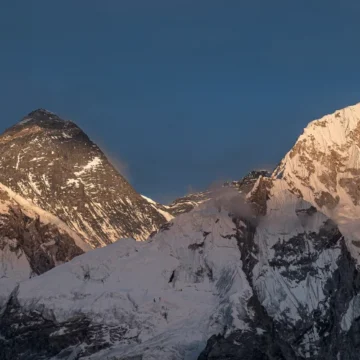
Top 10 Waterfalls You Can Visit While Trekking in Nepal
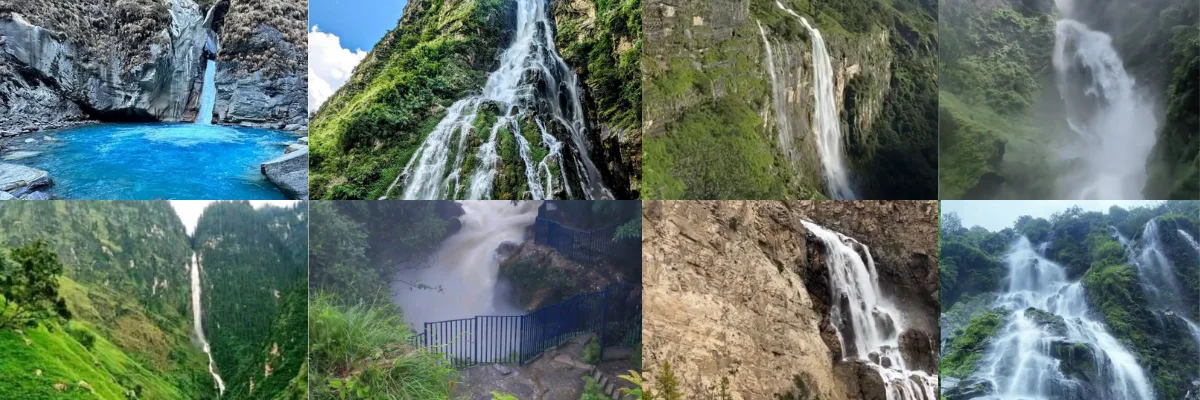
Table of Contents
Nepal is one of the richest freshwater reservoir countries in the world. Apart from snowy mountains, dramatic landscapes and lush greenery, waterfalls in Nepal bring equal beauty. Waterfalls heal you differently. Sitting next to them transfers energy and soothes your soul.
Nepal’s trekking trails don’t just lead to peaks; they also pass roaring waterfalls hidden in forests and cliffs. Here are 10 stunning waterfalls you can witness while trekking through Nepal’s diverse landscapes.
Phutphute Jharana
Phutphute or Futfute jharana is located on the way to North Annapurna Base Camp. It flows year-round, fed by glacial streams from the Annapurna range. It is surrounded by greenery, big rocks and blue water streaming down forms the lake setting.
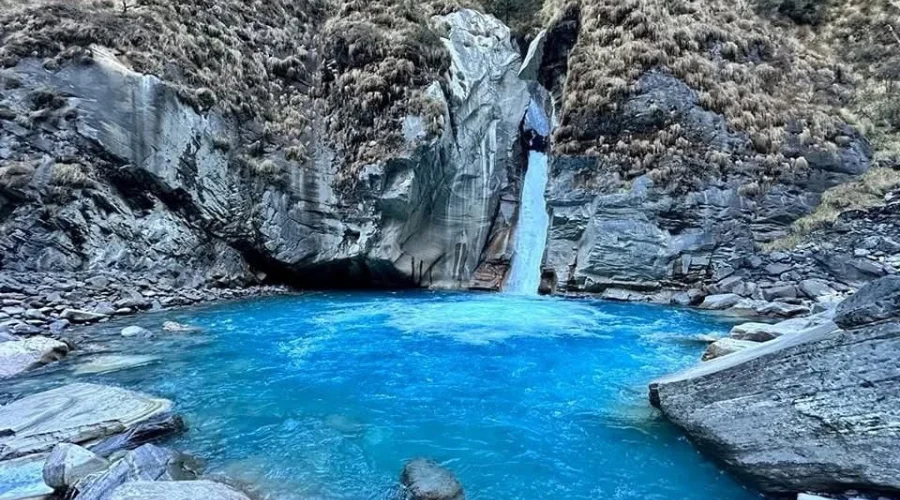
Elevation: 3,157 meters (10,358 feet)
Location: Annapurna Rural Municipality-4, Myagdi district, Nepal.
How to Get There: It’s on the way to North Annapurna Base Camp.
Octopus Jharana
Octopus Jharana is located on the way to the Annapurna circuit trek. It is called an octopus waterfall because the fall is spread in different directions, giving it the shape of octopus tentacles.
It remains active throughout the year, with its flow peaking during the monsoon. The trail to the waterfall is steep and slippery, often requiring caution.
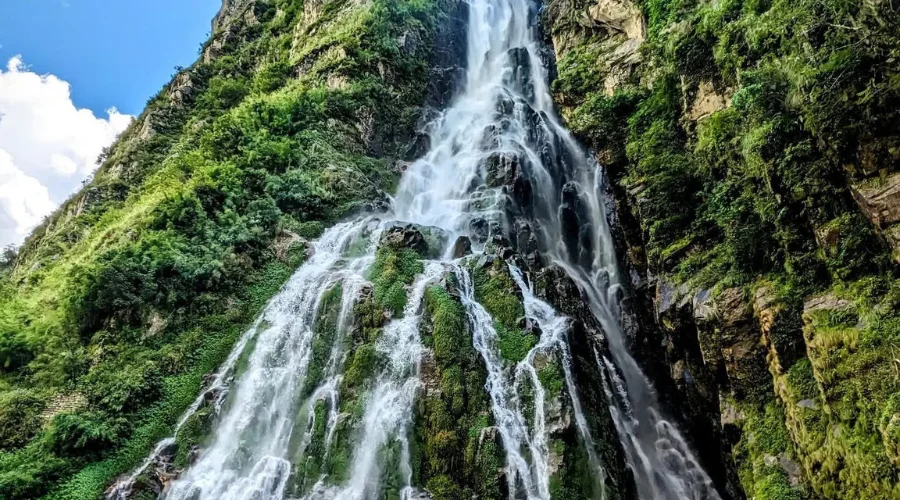
Elevation: 1,665 meters (5462.56 ft)
Location: Marsyangdi Rural Municipality-4 Chamcha
How to Get There: Drive from Kathmandu to Dharapani (8–9-hour drive), and while going from Dharapani to Chame, you find the octopus jharana right by the road.
Rupse Jharana
Rupse waterfall is a stunning waterfall located in Dana village, Myagdi district. It falls from an approximate height of 300 meters (984.25 ft).
The word “Rupse” means “beautiful” in Nepali, and the waterfall lives up to its name with a dramatic plunge down rugged cliffs beside the road. You come across while this waterfall while on Upper Mustang Trek or Annapurna Circuit Trek.
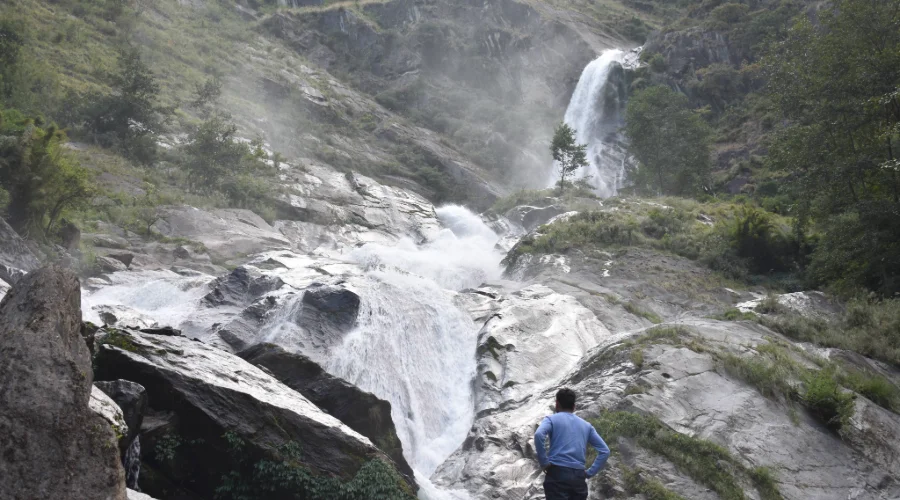
Elevation: 1800 meters (5905.51 ft)
Location: Dana, Myagdi district, Nepal.
How to Get There: Take a flight to Pokhara from Kathmandu (25 min). It is located on the Beni-Jomsom road and about 20 km from Beni. Accessible via jeep, bus, bike, or on foot from Dana village.
Davi’s Waterfall
Usually called Davi’s Fall or Patale Chhango, it is a top tourist spot in Pokhara, Nepal.
Its name traces to a tragic Swiss tourist named Davi (or Davis) who drowns in July 1961 after being swept into a sinkhole; her father’s request leads to the waterfall being named “Davis Falls,” later adapted locally to “Devi’s Fall.
Pokhara is the centre of so many treks, like Annapurna Base Camp Trek; you can explore this waterfall before heading out on any trek.
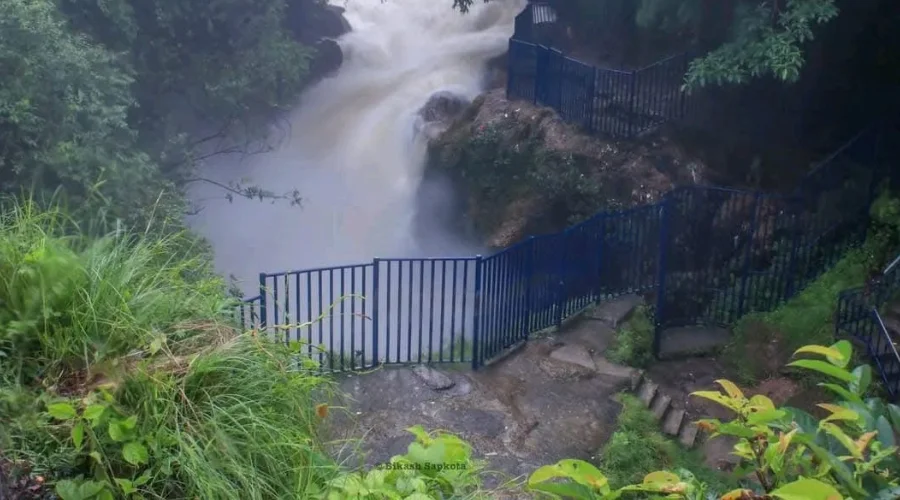
Elevation: 822 meters (2696.85 ft)
Location: Pokhara, Nepal
How to Get There: Fly or drive to Pokhara from Kathmandu. 4 km (1.2 miles) southwest of Prithvi Chowk, Pokhara.
Pachhal Jharana
Pachal Jharana (also called Pachal Waterfall) is the one of tallest waterfalls in Nepal, plunging approximately 481 m down a steep cliff.
The waterfall is fed by alpine sources and seasonal monsoon flows; its power and roar intensify from June to August while it maintains a steady flow year-round. You can explore this waterfall when on local treks in Kalikot like Rara Lake Trek or Badimalika Trek.
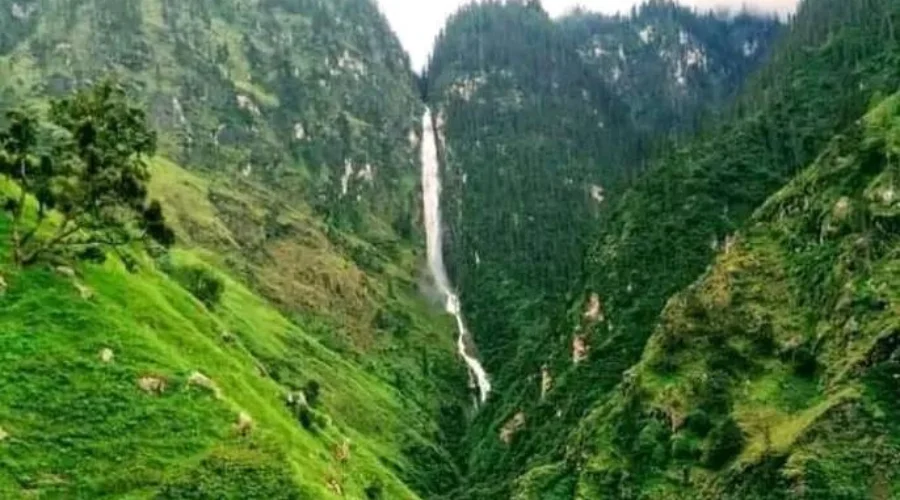
Elevation: 940 meters (3084 ft)
Locations: Pachaljharana Rural Municipality, Kalikot District, Karnali Province.
How to Get There: Take a flight to Surkhet from Kathmandu (1 hour 10 minutes). Hire a car or take a bus to Kalikot and trek for few hours from there.
Todke Jharana
Todke Jharana is one of the best photogenic places and is a majestic 85-meter (278.87 ft) high waterfall. It is surrounded by forest and rugged cliffs, and the cascades plunge into the Mai River.
You can explore this waterfall while on Sandakpur Trek, also called Singalila Ridge Trek. It’s a short detour or side hike from the Sandakpur trekking trail, which starts from places like Ilam Bazaar or Maimajhuwa.
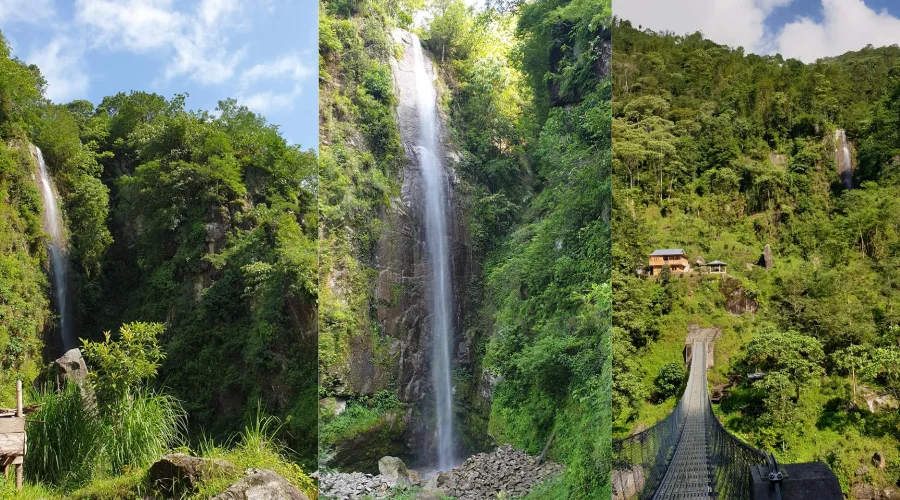
Elevation: 1600 meters (5249.34 ft)
Location: Maimajhuwa, Sandakpur‑2, Ilam District Nepal
How to Get There: Start from Ilam Bazaar, drive 25 km via Mechi Highway to Biblyate, then take a jeep trail. From the trailhead, hike 30 minutes downhill through the forest to reach Todke Jharana’s base.
Suligad Waterfall
Suligad Waterfall or Phoksundo Waterfall is a majestic 167-meter (548 ft) high cascade that tumbles from the outflow of Shey Phoksundo Lake in western Nepal’s Upper Dolpo region.
Located along the Phoksundo Lake Trek, the waterfall sits partway between Suligad (Suligaad) checkpoint and Ringmo village.

Elevation: 3457 meters (11342 ft)
Location: Dolpo, Nepal
How to Get there: Take a flight to Nepalgunj from Kathmandu (40-60 min flight). Hire a car or hop on a local bus to Suligad following the Chhinchu-jajarkot highway.
After reaching Suligad, Trek for 2 days and just 4 to 5 hours before reaching Ringmo village, you will come across this magnificent waterfall.
Mailung Jharana
Mailung Jharana, also called Bhange waterfall, can be explored while going on a Langtang Valley Trek. It plunges dramatically from about 150 meters (492.12 ft) and sits beside the road leading to the upper Trishuli hydropower plant.
You can also spot this waterfall from the road while going to the trailhead of the Langtang Valley trek.
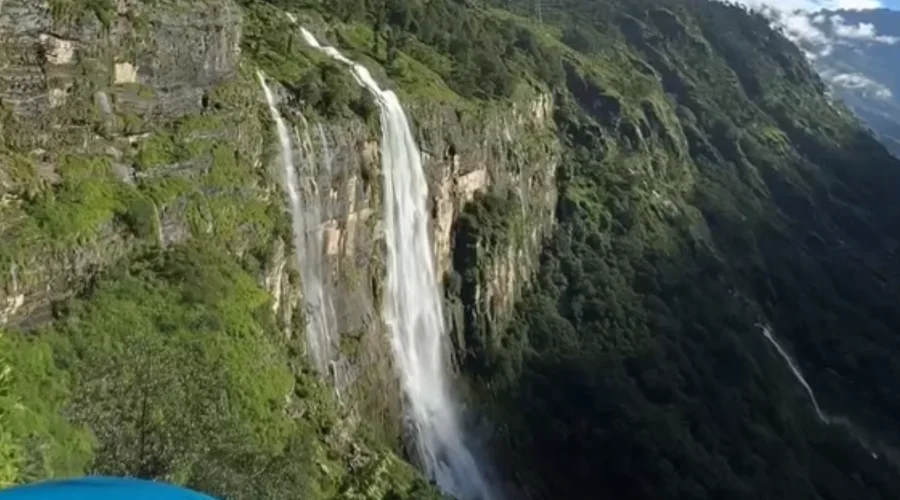
Location: Dandagaun, Rasuwa district
How to Get There: After landing in Kathmandu. When going to the trailhead of Langtang Valley Trek, you will come to this magnificent waterfall after 2-3 hours.
Tindhare Jharana
Tindhare Jharana, also known as Bahubali Jharana, is a striking 300 m (984.25 ft) waterfall cascading from the Mahabharat Range.
The falls split into three major streams, so it is called “Tindhare”, which means three streams and is called the Bahubali waterfall because the scene in the Bollywood movie depicts a similar waterfall.
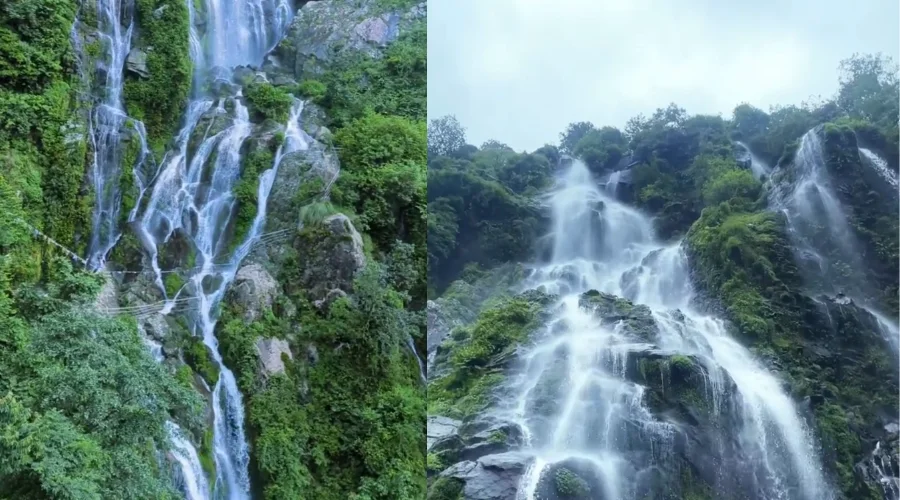
Elevation: 1800 meters (5905 feet)
Location: Roshi Rural Municipality, Kavrepalanchowk District, Nepal
How to Get There: Drive on the Araniko highway and follow these locations: Banepa, Dhulikhel, Namobuddha, Dhapcha and continue on the off roads until Kafal Danda (3-4 hours).
Pokali Jharana
Pokali Waterfall, found in the Pokali area of Okhaldhunga, Nepal, ranks as the country’s second tallest after Pachal. It plunges nearly 130 meters (426.5 ft)from its starting point.
Wrapped in dense, vibrant greenery, this cascade offers a truly stunning view. Visitors heading to Okhaldhunga definitely should include this natural wonder in their plans. You can explore this waterfall while exploring the local village hikes in Okhaldunga.
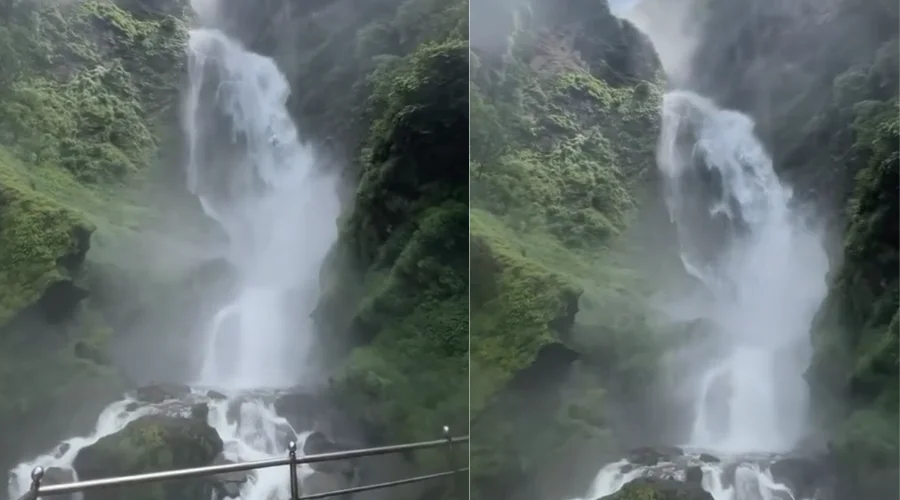
Location: Okhaldunga district, Nepal
How to Get There: After landing in the capital city of Nepal, Kathmandu. Take a bus to Ramechhap (6-7 hours), take a bus to Sirishe (3-4 hours) and hike for about 3 hours to reach Pokali village, where you will also find Pokali Jharana.
Best Time to Visit These Waterfalls on Trek
These waterfalls in Nepal are at their peak beauty during the months of April-May (spring season) to September-October (early Autumn). During these months, the waterfalls have a strong flow from snowmelt or post-monsoon rain, making them more powerful.
During the June-August months (Monsson Season), it can be unsafe to explore these waterfalls because trails can be slippery and risky due to landslides. It is also off-season for trekking activities in Nepal.
During winter, high-altitude waterfalls may be frozen because of extremely cold temperatures. There can be a risk of avalanche and altitude sickness, too.
September, October, and November (autumn season) are the best months to Trek and explore these waterfalls while on a Trek. During these months, you get clear skies and lush landscapes after the rain.
Why These Waterfalls Deserve a Spot on Your Trekking Bucket List?
These waterfalls in Nepal are more than just part of nature, and exploring waterfalls on the way to your trek can add magic and heal you. Each of the above-mentioned waterfalls in Nepal is set in stunning landscapes with cultural charm and mountain backdrops.
You’ll pass them naturally on famous trails like Annapurna Circuit, Langtang, or Phoksundo Lake Trek, making them easy to visit without detours.
Their powerful sound, fresh mist, and lush surroundings give you a refreshing break during long hikes. Many waterfalls also sit near quiet villages or viewpoints, adding both peace and photo-worthy moments.
Want to know more?
Speak to an Expert


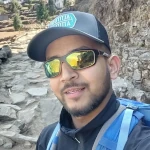


Sandip Dhungana
Nepal 🇳🇵
Whatsapp: +977-9823636377

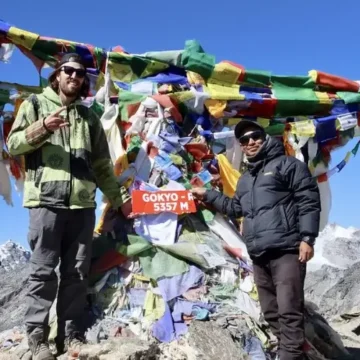
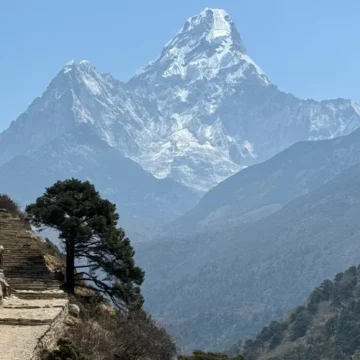
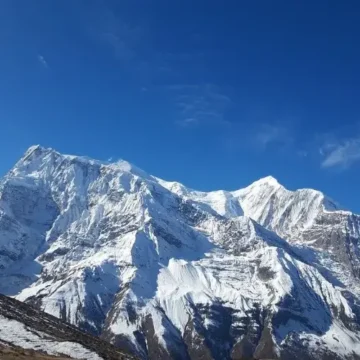
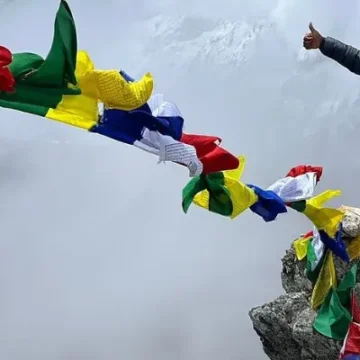
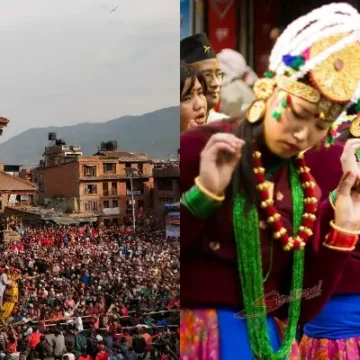
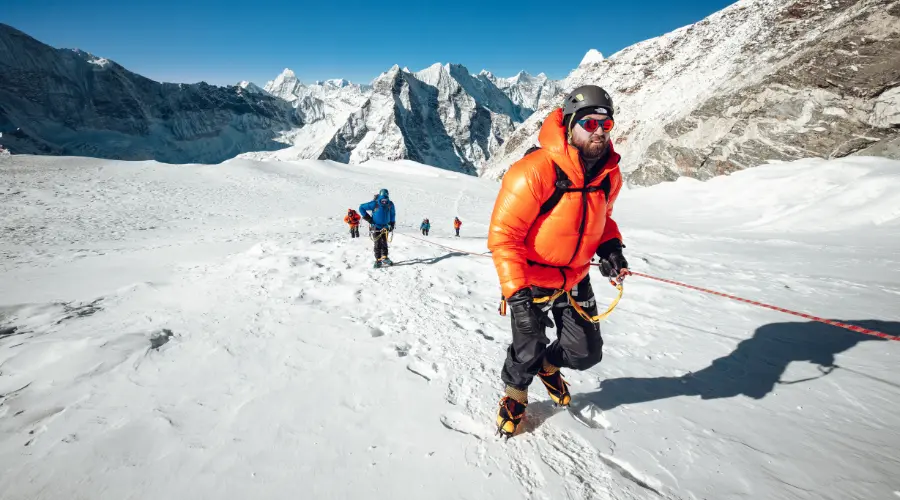
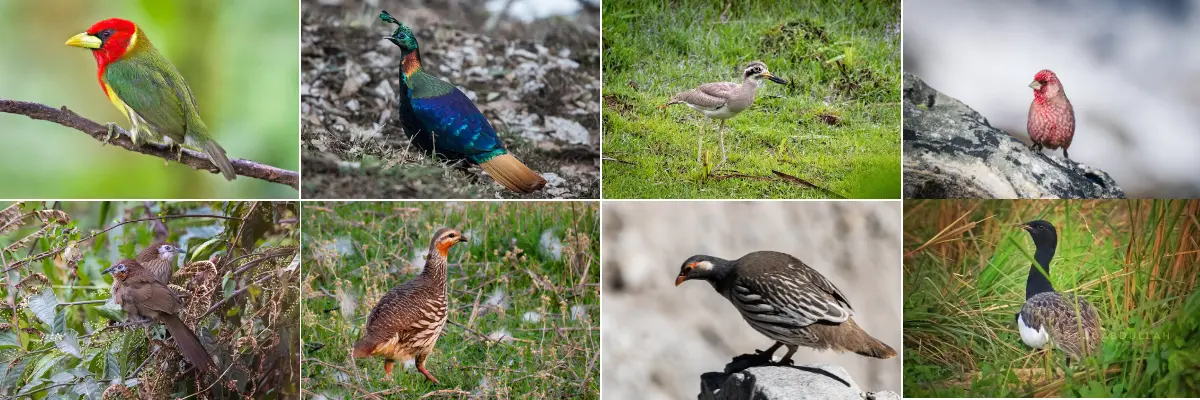

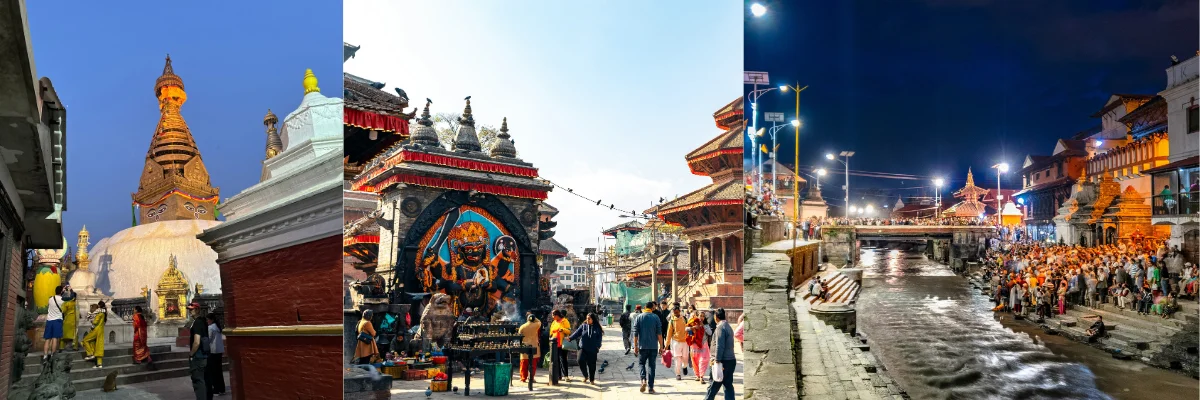

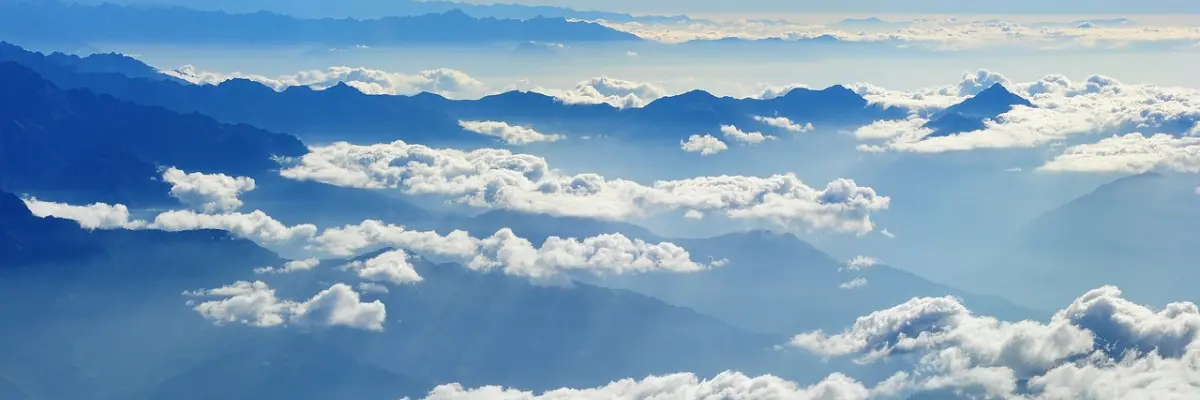
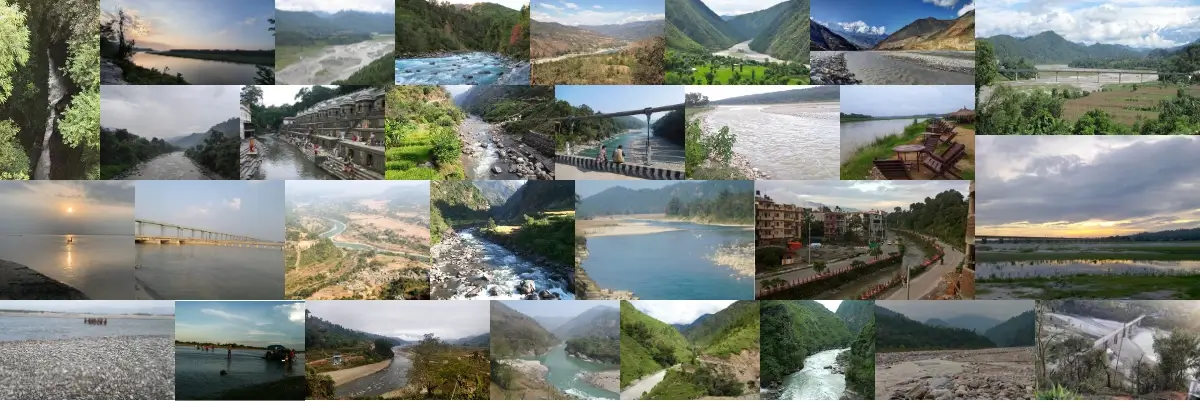









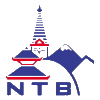
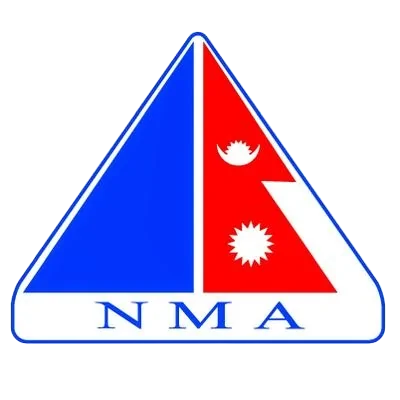

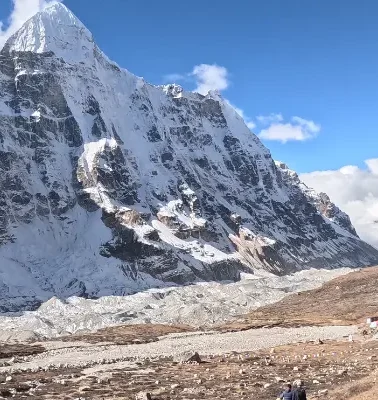
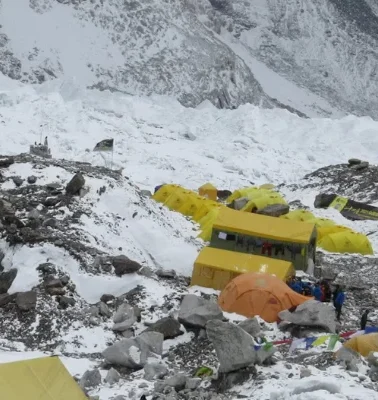
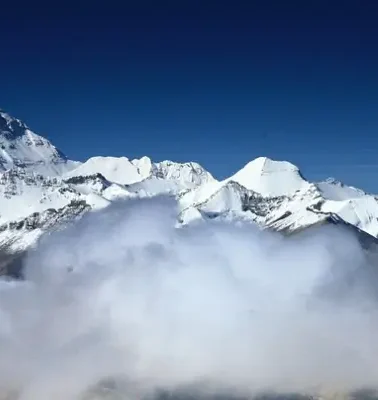
Leave Your Comment